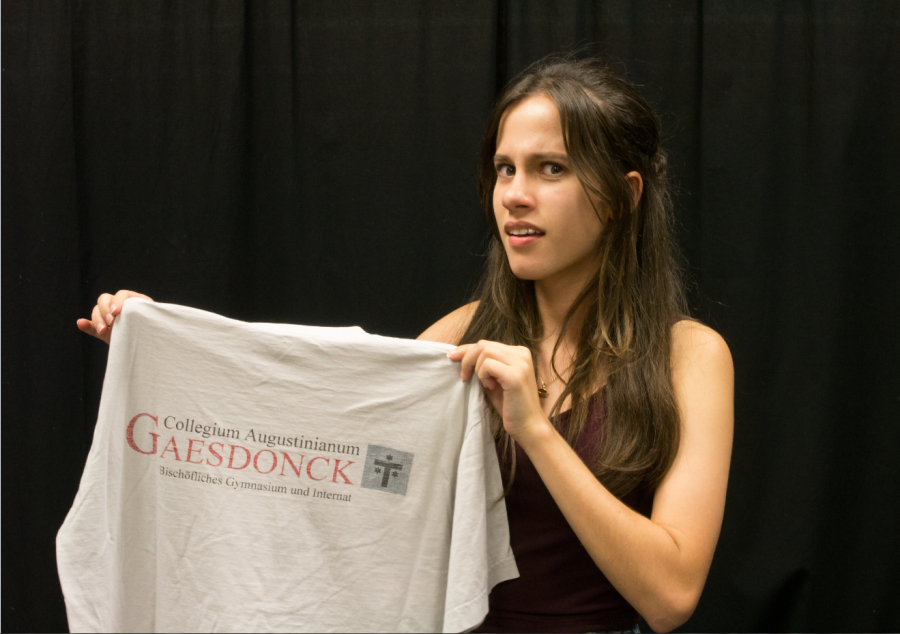Demystifying boarding schools
September 28, 2017
Imagine you’re in the most highly reputed religious Catholic boarding school in the nation. You’d probably expect a very strict educational environment that rigorously disciplines its picture-perfect students, right? At least that’s what I used to think before I attended boarding school myself.
Before I ended up at Lynbrook, I lived in several countries across the world, where I attended many different schools. One of those countries was Germany, where I attended a boarding school, which went from the 5th grade until the 13th grade. The school offered three attendance options: either we went home right after class, we stayed at school until 7 p.m. every day and only came home to sleep or we lived at school full time and returned home every other weekend. Although I normally attended this school through the second option, I got to experience two weeks of full-time boarding school when I was in seventh grade and my parents first traveled to Silicon Valley to check out the area.
When I was a little girl living in the suburbs of Brazil, I’d watch a lot of typical American high school movies, especially the ones in which a troublemaker kid was sent away to boarding school because his or her parents believed that a private, upscale school would enforce some sort of magical discipline that would suddenly fix their child. Because of such movies, I grew up believing that boarding school students led perfect, balanced lives and that the school transformed each student into the dream child that every parent hopes to have. Sadly, my beliefs stood to be corrected. What I found out during my temporary stay in full-time boarding school completely horrified my little seventh grade self. Of course, before attending boarding school, I was aware of the existence of alcohol and tobacco, but I had only ever seen adults drinking and smoking; the thought of kids doing such things had never even crossed my mind.
The school was built like a small village and had its own church, lake and forest. Located among the rural fields on the border between Germany and the Netherlands, it was basically in the middle of nowhere. Students had six hours of free time between the end of school and the start of our daily mandatory homework-center class, and after dinner we were given at least three more hours of free time. So, most students had around nine hours of far too much freedom and way too little to do. Although we were offered after school activities, those occupied less than one hour of our schedules and only occurred once every week. We were only allowed to leave campus three times a week, with the only possible destination being the small Dutch village nearby that consisted of nothing more than a church, a grocery store and elderly people.
Needless to say, these boarding school students lived a life of pure boredom and pointless freedom. On top of that, they barely got to see their families and lived lonely lives, which led them to build their social lives around alcohol and cigarettes, meeting every day in the woods of the school or at the various nearby fields to socialize.
Since German high school starts at 5th grade, this meant that the youngest students at my boarding school were around 10 years old. A few of these students that I knew personally and saw around campus on a daily basis always seemed to be super friendly and innocent whenever I interacted with them. After my first night at full-time boarding school, I was more than shocked to find out that these same children smoked at least half a packet of cigarettes each day. The oldest students on campus were around 19 years old and had been taught how to smoke and drink by the previous generations of students. Each year, the students continued to pass on such long-established traditions of survival to the younger generations that lived on campus. I was completely traumatized, especially after the sad two-week experience of watching my youngest peers smoke their lives away every single day for no reason other than to eradicate boredom.
After my time in boarding school, I was really disappointed. Disappointed in my school, my peers and the media. My boarding school experience had been nothing like what the movies had led me to believe it would be. Boarding school wasn’t a world of honorable excellence at all, it was a world of severely corrupted children. It was horrifying to see that all the full-time boarding school kids I thought I knew turned out to have severe addictions to cigarettes and alcohol. I believe that the media should refrain from portraying unrealistic clichés as a reality and should depict more authentic real-life situations in movies, while boarding schools such as the one that I attended should provide kids with more chances to leave campus and opportunities to actually enjoy their childhoods like any other kids, instead of letting them waste their lives away at a young age.




































































Ezyschooling • Jan 17, 2023 at 10:22 pm
Hi Clara,
Boarding school can seem mysterious and even a bit intimidating to those who have never experienced it. The truth is that it can actually be a great educational and social experience for students. Boarding schools offer students a unique opportunity to become part of a tight-knit community and to develop strong relationships with peers and teachers. Boarding schools also typically offer rigorous academic programs and plenty of extracurricular activities that help to develop well-rounded students.
Lastly, many boarding schools also provide a safe and secure environment where students can focus on their studies without distractions.